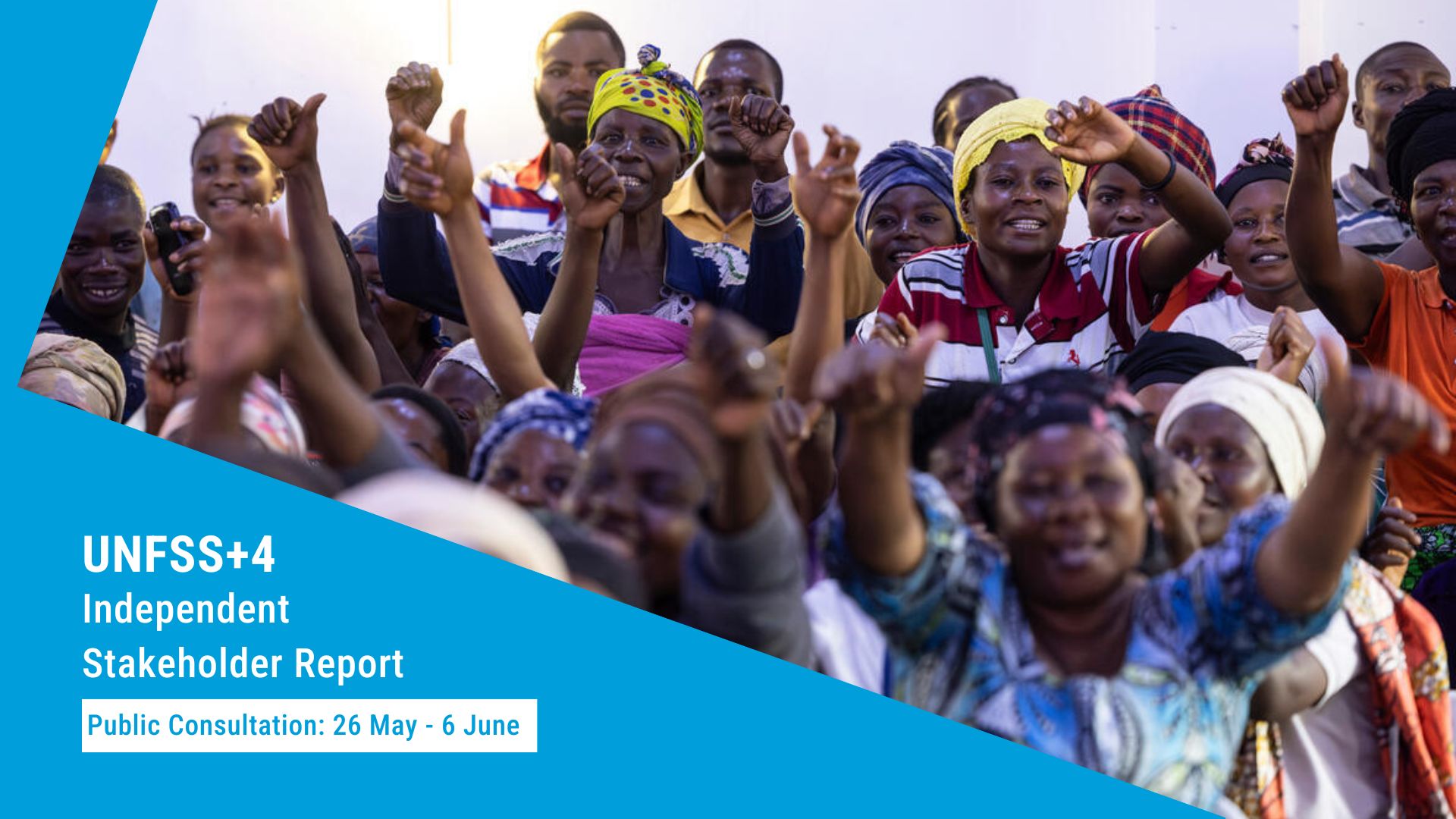OVERVIEW AND UPDATES
About UNFSS+4
The 2nd United Nations Food Systems Summit Stocktake (UNFSS+4) will take place July 27–29, 2025, in Addis Ababa, Ethiopia, co-hosted by Ethiopia and Italy. Building on the momentum of the 2021 UN Food Systems Summit (UNFSS) and the first Stocktake in 2023 (UNFSS+2), this event will reflect on global progress in food systems transformation, strengthen collaboration, and unlock finance and investments to accelerate action towards the 2030 Sustainable Development Goals (SDGs).
With just five years remaining until 2030, UNFSS+4 will serve as a critical moment to reflect on national efforts, explore solutions, and mobilize stakeholders toward sustainable, resilient, and inclusive food systems.
.png?sfvrsn=5d82f83a_1)

KEY DATES AND STRUCTURE
- July 27-29 , 2025 | Addis Ababa, Ethiopia
The high-level opening will include participation from heads of state and government, and other global leaders.
A pre-summit session will also take place, where civil society – including youth, Indigenous groups, smallholder farmers, and women’s organizations – will lead discussions on the future of food systems transformation.
Why UNFSS+4 Matters
The 2021 UN Food Systems Summit (UNFSS) positioned food systems as a key lever for the sustainable development agenda. However, geopolitical challenges, ongoing conflicts, and the climate crisis have hindered progress. UNFSS+4 aims to address these challenges by reinforcing commitments made at previous summits, aligning global priorities, and accelerating practical solutions.
.png?sfvrsn=fd4fd9b9_1)
Building on UNFSS+2: The Call to Action
At UNFSS+2 in 2023, the UN Secretary-General issued a Call to Action for accelerated food systems transformation, urging governments and stakeholders to:
- Integrate food systems strategies into all national policies for sustainable development.
- Strengthen governance frameworks to engage all sectors and stakeholders.
- Invest in research, data, innovation and technology capacities, including stronger connections to science.
- Promote inclusive participation of women, youth, and Indigenous communities.
- Expand private sector engagement through sustainable business practices.
- Improve access to financing and concessional funding for food systems transformation.
Objectives of UNFSS+4
Reflecting on progress
Reflecting on achievements and identifying lessons learned, while analyzing the factors that have enabled success in various contexts. This will provide a foundation for understanding gaps and scaling transformative solutions.
Strengthening partnerships and tracking commitments
Advancing inclusive, rights-based collaboration and mutual accountability by aligning efforts, tracking progress, and engaging all actors—especially marginalized groups—to accelerate sustainable, resilient, and equitable food systems transformation.
Unlocking investments
Exploring opportunities for financing innovations and scaling solutions, with a focus on creating enabling environments, leveraging public-private partnerships, and mobilizing climate and development finance to support transformative actions at scale.
Stay Updated
Regular updates, event briefings, and engagement opportunities will be shared leading up to UNFSS+4. Subscribe to our mailing list to informed.

Public consultation on the draft UNFSS+4 Independent Stakeholder Report

A public consultation on the draft UNFSS+4 Independent Stakeholder Report is now live and open for contributions until 6 June 2025.
This consultation offers a key opportunity for non-state actors across the food systems landscape—including producers and food chain workers, civil society, Indigenous Peoples’ organizations, researchers, academia, the private sector, youth and women’s networks—to provide input into the UN Food Systems Summit+4 (UNFSS+4) Stocktake process.
Access the consultation and contribute feedback here.
This consultation is designed to ensure that the final report reflects the diverse perspectives, experiences and priorities of non-state actors from around the world. The report will serve as a key input to the UN Food Systems Summit +4 Stocktake, taking place in Addis Ababa, 28–29 July 2025, helping to shape the global narrative on food systems transformation.
This is a unique opportunity for non-state actors to:
- Validate the findings and messages in the draft report;
- Share additional insights, corrections or perspectives;
- Strengthen recommendations for action.
How to contribute
- Visit the consultation page and click the “Join” button on the top left corner. You will be asked to “sign up” by providing your name and email address.
- Read the draft UNFSS+4 Independent Stakeholder Report.
- Go to the discussion rooms (one for each chapter) and share your feedback on the draft report and/or the guiding questions posed.
About the Independent Stakeholders' Report
The Independent Stakeholders’ Report will complement the official UN Secretary-General's Stocktake Report, by highlighting the perspectives of non-state actors (NSAs), including producers, consumer organizations, private sector representatives, youth, women, Indigenous Peoples, education and research institutions, workers and trade unions and other food systems stakeholders.
Framed and drafted independently by self-organizing multi-stakeholder constituencies, the report will assess progress, challenges and investment opportunities in food systems transformation. It will also reflect on NSA accountability, by setting out key objectives for different actors of the food systems community against which they will be invited to report at regular intervals.
